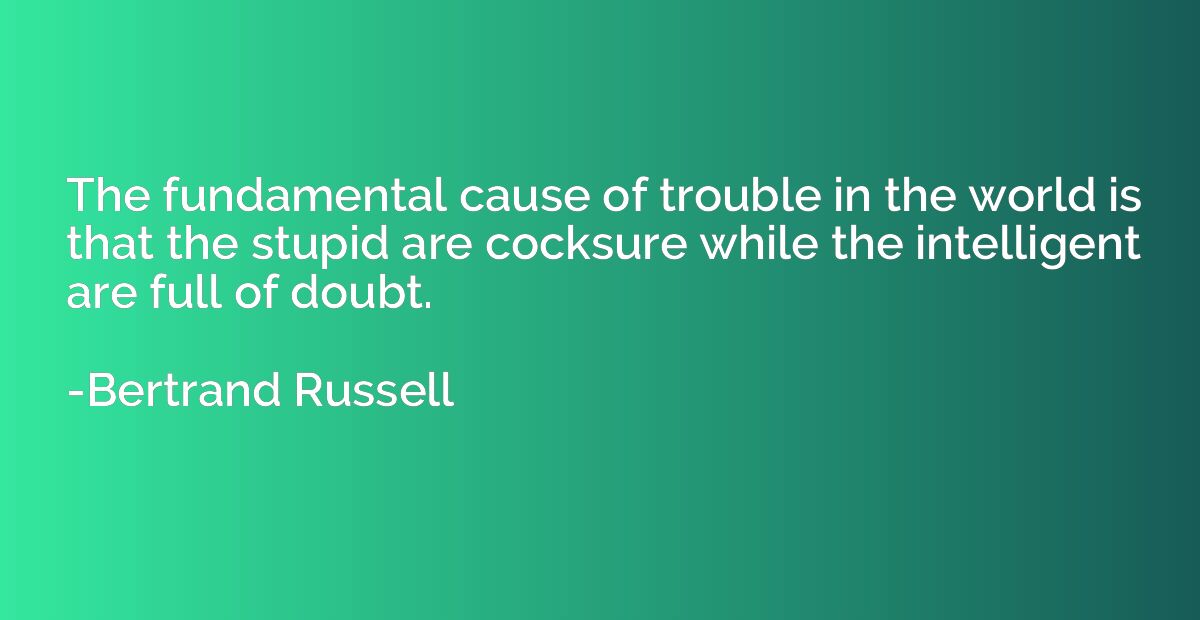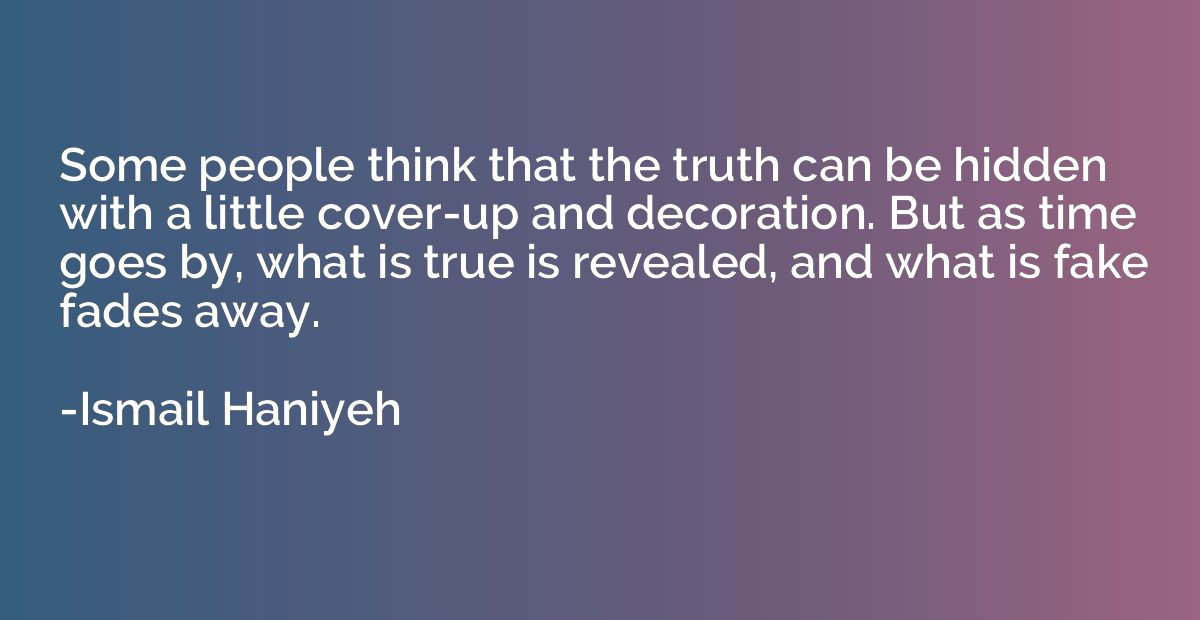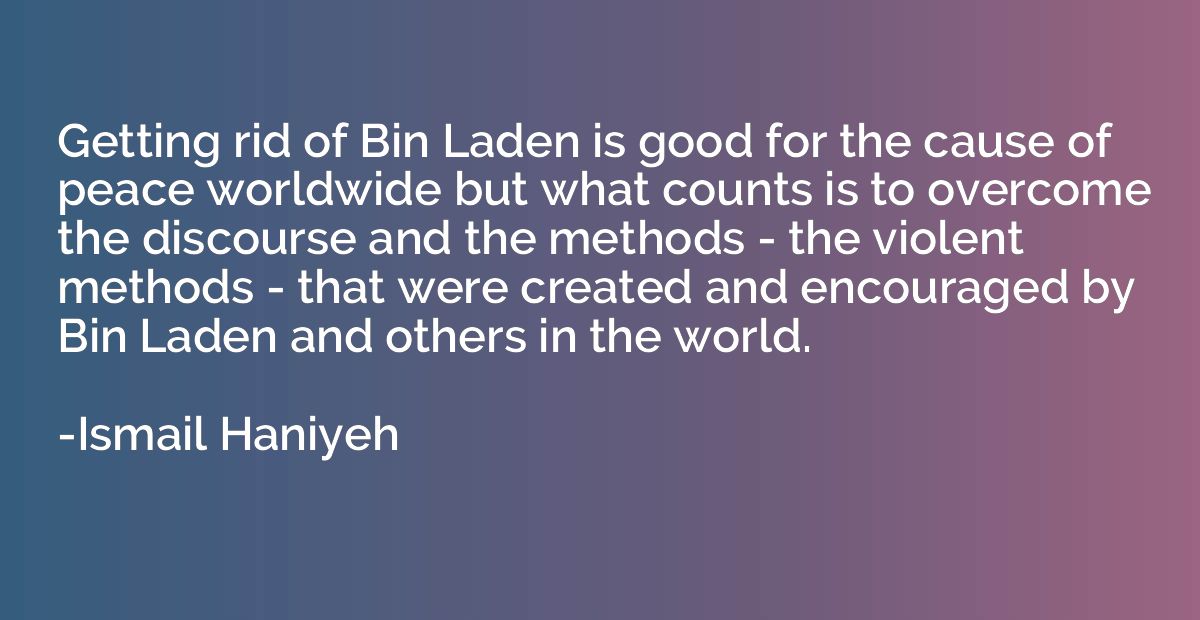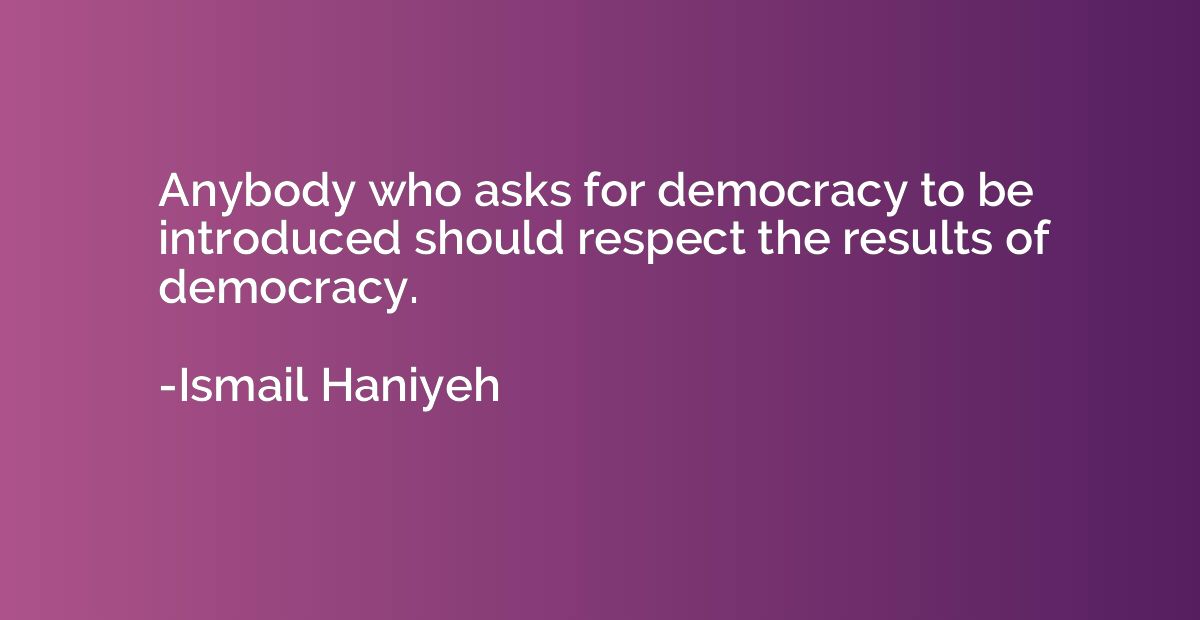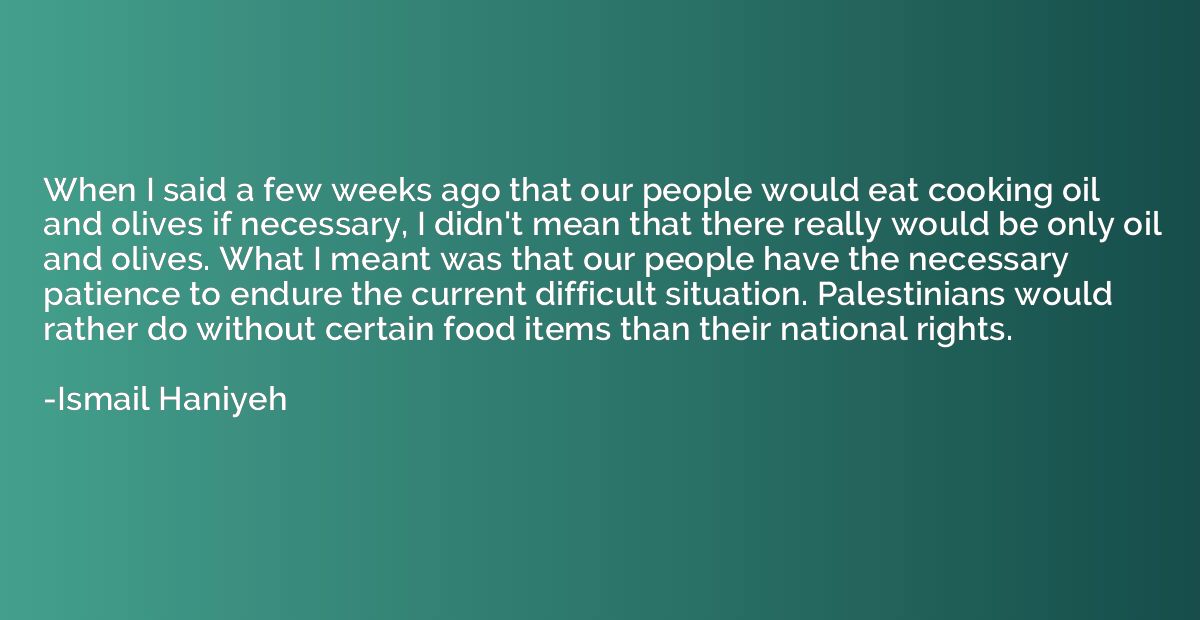Ismail Haniyeh Quotes
A collection of quotes by Ismail Haniyeh.
Ismail Haniyeh is a prominent Palestinian politician who was born on January 29, 1963, in the Shati refugee camp in Gaza City, Palestine. He rose to prominence as a senior leader of Hamas, the Palestinian Islamic resistance movement.
Haniyeh began his political career in the mid-1980s when he became an active member of the Muslim Brotherhood. He played a crucial role in the development of Hamas, which was founded in 1987 during the First Intifada (Palestinian uprising against Israeli occupation). Over the years, Haniyeh held various positions within Hamas and became an influential figure in Palestinian politics.
He gained global recognition when he was elected as the prime minister of the Palestinian Authority in 2006, following Hamas's victory in the legislative elections. However, his tenure was marked by internal conflicts and the Israeli blockade of Gaza, severely limiting his ability to govern effectively.
Throughout his political career, Haniyeh has been a staunch advocate for Palestinian self-determination and the establishment of an independent Palestinian state. He has also been involved in numerous diplomatic efforts to end the Israeli-Palestinian conflict, including negotiations for reconciliation between Hamas and the rival Fatah party.
While Haniyeh's leadership has garnered support from many Palestinians, his association with Hamas and their ongoing armed resistance against Israel has also generated criticism from international actors. Nonetheless, Haniyeh remains a significant figure in Palestinian politics, advocating for the rights and aspirations of the Palestinian people.
